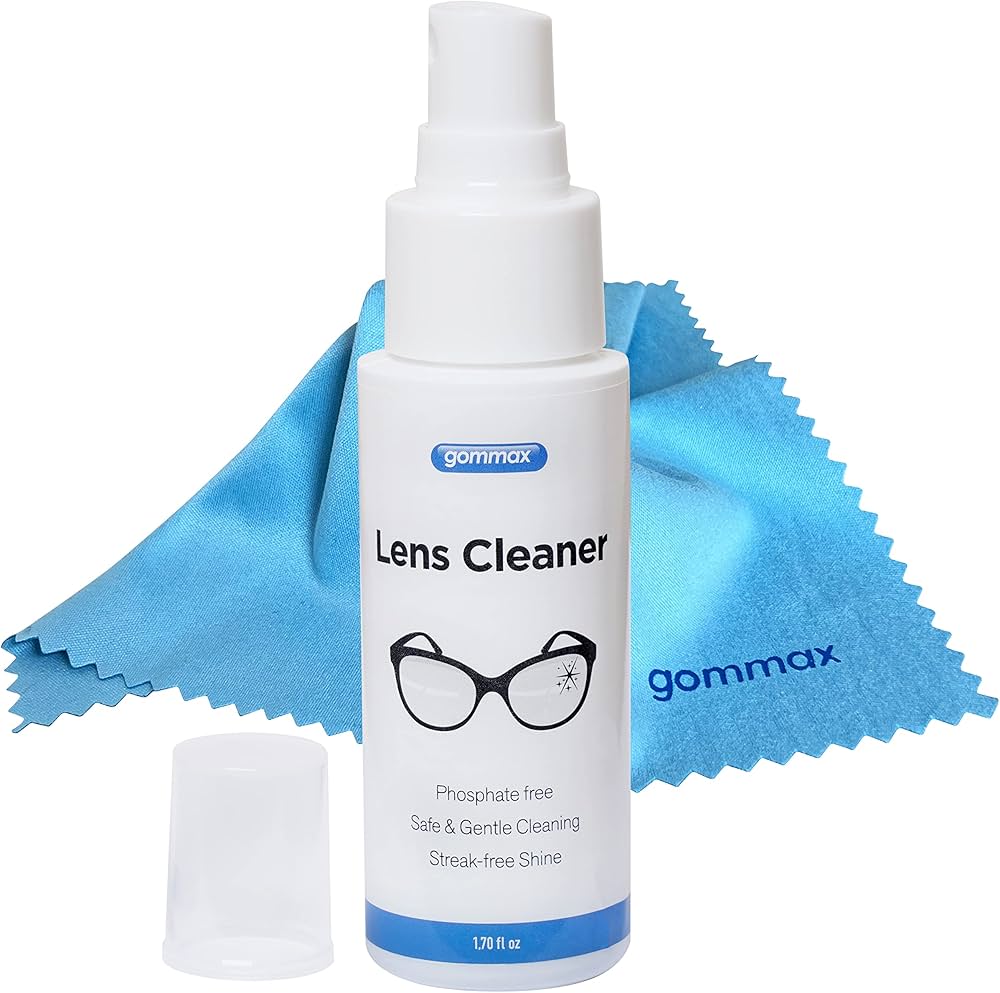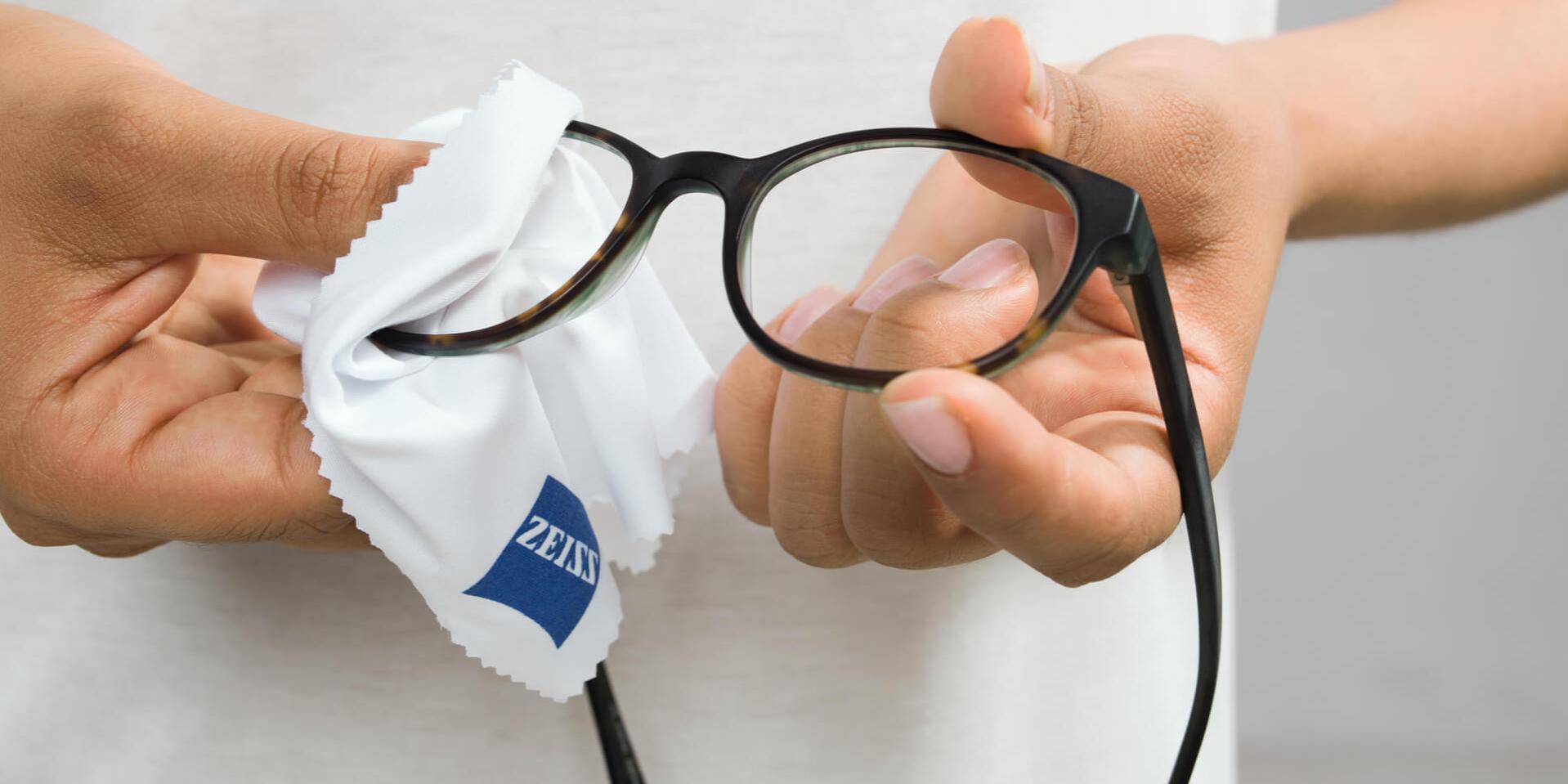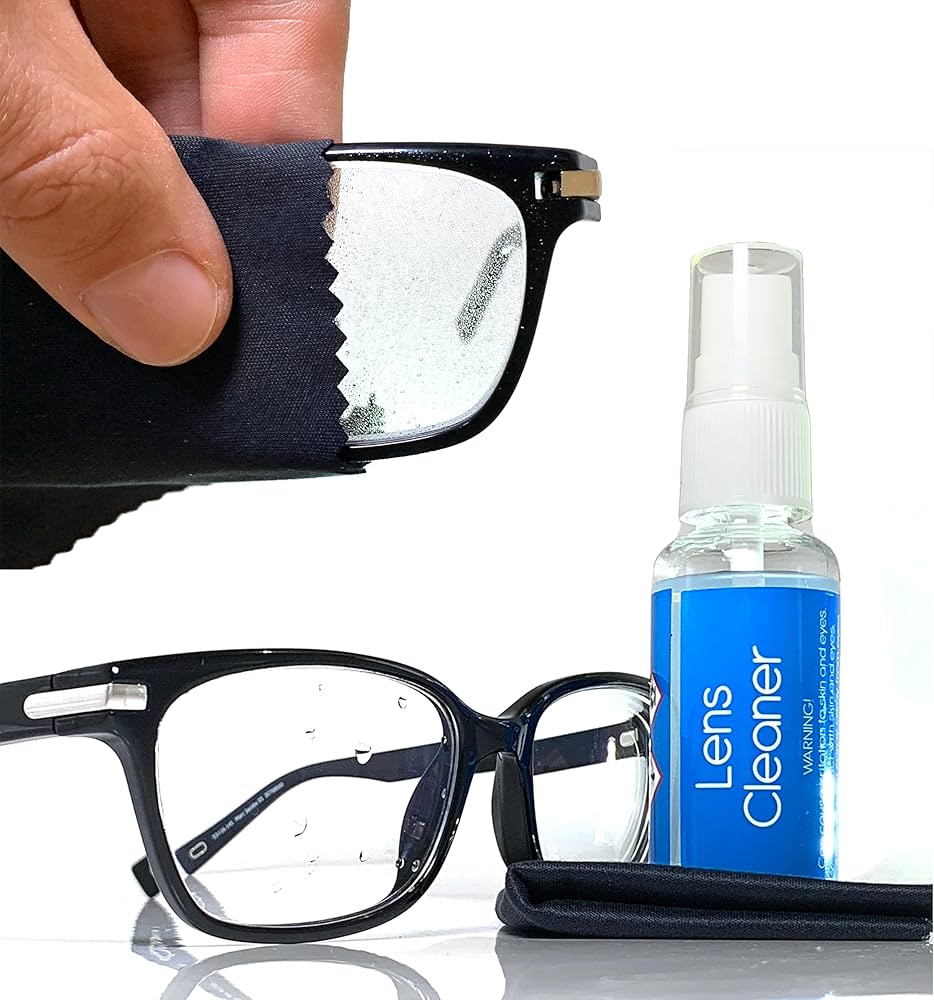
Date: 24 Oct 2025
If you wear eyeglasses, you know how quickly lenses can get smudged, dusty or greasy — and how frustrating that can be for clear vision.
Cleaning your lenses properly isn’t just about appearance; it’s about maintaining the coatings, the clarity and the lifespan of your glasses.
Why Proper Cleaning Matters
According to the experts at Specsavers, cleaning your lenses the correct way helps keep vision clear and prolongs the life of the glasses. Improper cleaning (using the wrong cloth, strong household chemicals, or failing to remove dust) can damage special coatings on lenses.
Similarly, other sources warn that generic cleaners, paper towels, or ammonia-based sprays may scratch or degrade anti-reflective and UV coatings.
So, good cleaning = better vision + longer lifespan for your glasses. It’s worth doing right.
How to Clean Your Eyeglasses: Step by Step

Here’s a proven step-by-step routine recommended by opticians:
- Wash your hands thoroughly with soap and water. You want clean hands so you’re not transferring oil or dirt to your lenses.
- Rinse the glasses under warm water or hold them under a gentle stream to remove dust or grit. This helps prevent scratching when you wipe. (Some sources add this step though a few skip it; if you have heavy outdoor dust, it’s a good idea.)
- Apply a specialist lens cleaner or a drop of mild dish soap to both sides of each lens. According to Specsavers, use a cleaner designed for lenses to avoid risk of scratching.
- Use a clean microfiber cloth (never paper towels, your shirt or a rough cloth) to gently wipe the lenses.
- Dry the frames — use the soft lens cloth to wipe down the frames and hinges, and if needed use a soft toothbrush (very gently) to clean around hinge areas and where lenses meet frames.
- Store your glasses properly when not in use — in a case, away from heat (e.g., the car dashboard) and with the lenses facing upward if sat down. Proper storage prevents warping of frames and damage to coatings.
What to avoid:
- Do not use alcohol wipes or rubbing alcohol unless explicitly safe for your lens coating — many coating manufacturers advise against high alcohol content.
- Do not breathe on the lenses then wipe — this just adds moisture and may smear rather than clean.
- Do not use strong household cleaners (ammonia, acetone, or bleach) — they can damage coatings permanently.
Features of a Good Lens Cleaner
When you’re choosing a lens cleaner (spray, wipe or solution), here are the features you should consider:
- Safe for anti-reflective, scratch-resistant and UV-coated lenses
- Low or no harsh alcohol or ammonia content (unless specifically formulated)
- Leaves no streaks or residue
- Compatible with your lifestyle (travel size, wipe vs spray, etc.)
- Good microfiber cloth ( if included ) that doesn't trap dust or oil
According to tests in optics review sources, a strong lens cleaner will fully emulsify oils on a lens surface so that water runs off in a full sheet rather than beading. One community forum noted:
“Blow off particulates first…Then Zeiss wipes.”
This underscores that pre-cleaning big dust/debris is as important as the cleaner itself.
Top Lens Cleaners for Eyeglasses

Here are some of the top lens-cleaning products recommended by expert review sites and used widely by glasses wearers. (Product names only; you can find current sellers/links in your region.)
- Zeiss Lens Wipes — Widely cited as “best overall” because they are individually wrapped, convenient for travel, gentle on lens coatings, and designed for optical surfaces including cameras and binoculars.
- Healthpoint Spectacle & Lens Wipes — These pre-moistened, anti-static, alcohol-based wipes deliver a quick and effective clean without scratching or leaving streaks. Perfect for use on glasses, phone screens, tablets, camera lenses, laptop monitors, and more.
- The Wipe ‘N Clear Premoistened Lens Wipes offer quick, convenient, and safe cleaning for all your optical and digital lenses. Each wipe is specially formulated to remove dust, oil, and smudges without scratching or leaving residue, ensuring crystal-clear visibility in seconds.
- Eyedia Multi-Purpose Contact Lens Solution - 230ml is a comprehensive, all-in-one solution designed to simplify the care and maintenance of your contact lenses. This multi-purpose formula cleans, rinses, disinfects, and stores your lenses effectively, ensuring they remain safe and comfortable to wear every day.
- Optix 55 Anti-Fog Spray — Ideal if you frequently deal with fogging lenses (e.g., mask wearers, humidity changes). It applies a film that resists fog build-up, although check compatibility with anti-reflective coatings.
- Wipe ‘N Clear Spray Lens Cleaner (4oz) is a professional-grade cleaning solution designed to keep your lenses spotless and crystal clear. Whether you wear glasses, use a camera, or rely on digital screens, this cleaner delivers a quick, gentle clean without scratching or clouding the surface.
Cleaning your eyeglasses properly and choosing the right lens cleaner are small investments that pay off with sharper vision, longer-lasting lenses, fewer headaches and less irritation from smudges.
Whether you opt for wipes, sprays, cloths or an ultrasonic cleaner, the key is to match the product to your usage pattern (travel vs home, heavy outdoor vs indoor, standard duty vs anti-fog).
Remember the big steps: rinse if dusty, use a lens-specific cleaner, wipe with a clean microfiber cloth, store wisely and protect the micro-texture of your coatings.
With the right routine and product, your glasses can stay near-new even after months of wear.
FAQs
Can I use alcohol to clean my eyeglasses?
No. Alcohol can damage lens coatings and cause fogging over time. Use products specifically designed for optical lenses.
What’s the safest cloth for cleaning glasses?
A microfiber cloth is ideal — it traps dust and oils without scratching. Avoid paper towels or napkins.
How often should I clean my glasses?
Ideally, once or twice a day for the best vision and hygiene.
What should I do if my lenses are already scratched?
Unfortunately, scratches can’t be removed. However, using a high-quality cleaner can reduce their visibility and prevent further damage.




